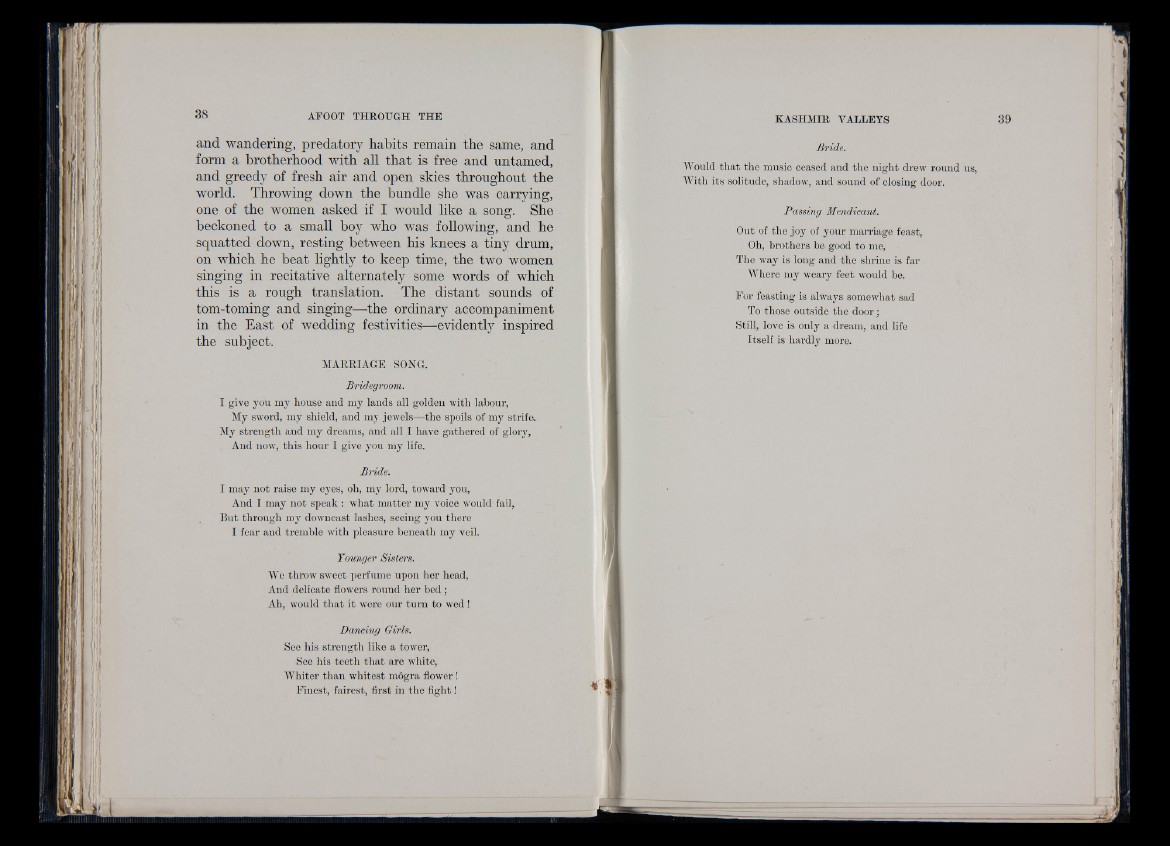
and wandering, predatory habits remain the same, and
form a brotherhood with all that is free and untamed,
and greedy of fresh air and open skies throughout the
world. Throwing down the bundle she was carrying,
one of the women asked if I would like a song. She
beckoned to a small boy who was following, and he
squatted down, resting between his knees a tiny drum,
on which he beat lightly to keep time, the two women
singing in recitative alternately some words of which
this is a rough translation. The distant sounds of
tom-toming and singing—the ordinary accompaniment
in the East of wedding festivities—evidently inspired
the subject.
MARRIAGE SONG.
Bridegroom.
I give you my house and my lands all golden with labour,
My sword, my shield, and my jewels—the spoils of my strife.
My strength and my dreams, and all I have gathered of glory,
And now, this hour I give you my life.
Bride.
I may not raise my eyes, oh, my lord, toward you,
And I may not speak : what matter my voice w'ould fail,
But through my downcast lashes, seeing you there
I fear and tremble with pleasure beneath my veil.
Younger Sisters.
We throw sweet perfume upon her head,
And delicate flowers round her b ed ;
Ah, would th a t it were our turn to wed !
Dancing Girls.
See his strength like a tower,
See his teeth th a t are white,
Whiter than whitest mogra flower !
Finest, fairest, first in the fig h t!
Bride.
Would tha t the music ceased and the night drew round
With its solitude, shadow, and sound of closing door.
Passing Mendicant.
Out of the joy of your marriage feast,
Oh, brothers be good to me,
The way is long and the shrine is far
Where my weary feet would be.
For feasting is always somewhat sad
To those outside the door;
Still, love is only a dream, and life
Itself is hardly more.